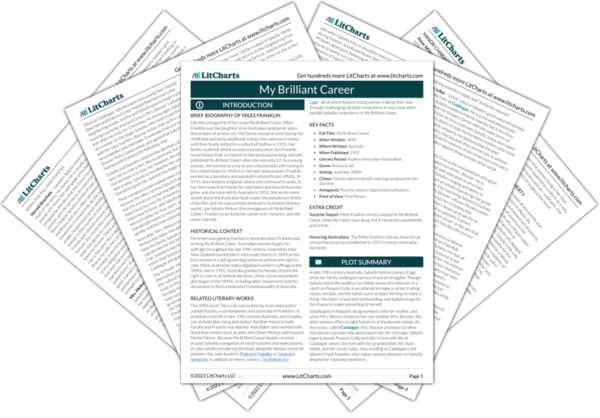Sybylla acknowledges her own status as an unreliable narrator, as she cannot fully explain her behavior. Her attack with the whip recalls the first day of Harold and Sybylla’s relationship. They first bonded when Harold playfully showed off with his stock-whip, and Sybylla trusted him not to hurt her with it. Now, Sybylla has intentionally whipped Harold in the face. This suggests that Harold handles his relationships, particularly his courtship with Sybylla, with more gentleness and forethought than Sybylla does. The violence is also gendered; women are not supposed to be aggressive, and Sybylla is ashamed by her own unwomanliness. Harold, on the other hand, holds to the laws of conventional manliness and does not reciprocate an attack.
